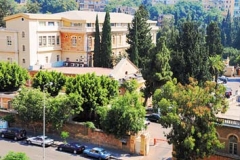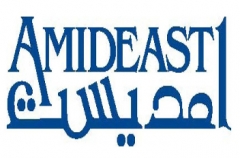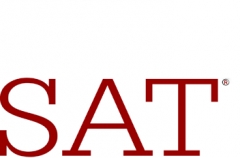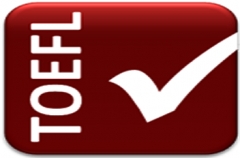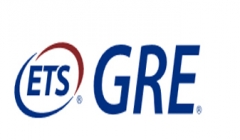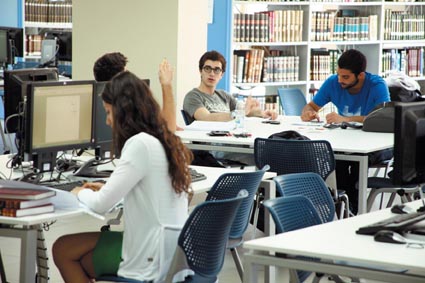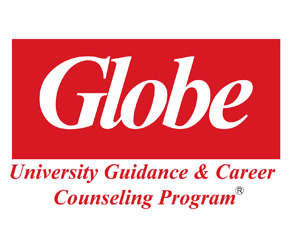Steinbeck Fellows Program 2011 – San José State University in USA
The Steinbeck Fellows Program 2011 of San José State University in USA
Introduction: The Steinbeck Fellows Program of San José State University (SJSU), which was endowed through the generosity of Martha Heasley Cox, offers new writers of any age and background the opportunity to pursue a significant writing project while in residence at SJSU. The emphasis of the program is on helping emerging writers, which generally means someone who has had some success, but has not published extensively, and whose promising work would be aided by the financial support and sponsorship of the Center and the Unviersity’s cretive writing program. The Steinbeck Fellowship Program is named in honor of author John Steinbeck and is guided by his lifetime of work in literature, the media, and environmental activism. The program offers the opportunity to interact with other writers, faculty and graduate students, and to share their work in progress by giving a public reading once each semester during the fellowship. The fellowships afford a stipend of $10,000. Housing assistance is available, depending upon need. Residency in the San José area is required during the academic year (approximately 1 September – 20 May).
Fellowships Offered: Currently, SJSU offers one-year fellowships in Steinbeck scholarship and in creative writing, including drama, creative nonfiction, and biography. In awarding fellowships, the selection committee considers the quality of the candidate’s proposal and any factors that would lead to expectations of future publication and other achievement. The creative writing fellowship does not require that there be any direct connection between Steinbeck’s works and that of the applicant. Applicants who are enrolled in a graduate program of study must furnish evidence that they have completed all coursework, except any course registration associated with a thesis.
Stipend: The fellowships afford a stipend of $10,000. Housing assistance may be available. Residency in the San José area is expected during the academic year.
Application Checklist:
Proposal or Prospectus for Work to be Written (one to three pages describing your project and how you hope to use your time) / Resumé / Three Letters of Recommendation / Writing Sample (no more than thirty pages) / Stamped Self-Addressed Envelope.
Application Deadline: Postmark of 2 January 2012
Announcement of Award : By 15 March 2012
Contact:
Steinbeck Fellows Program
Martha Heasley Cox Center for Steinbeck Studies
San José State University San José, CA 95192 0202
Email : pdouglas(AT)email.sjsu.edu
Contact Number : 408-808-2067 / Fax : 408-808-2069
Bachelor’s or Master’s Scholarship for students at Lund University, Sweden 2012
Study Subject(s):Courses offered by the University
Course Level:Bachelor’s or Master’s
Scholarship Provider: Lund University
Scholarship can be taken at: Sweden
Eligibility:
Students who have applied for Bachelor’s or Master’s level studies at Lund University for a minimum of one semester of study (the equivalent of 30 ECTS full-time study) and who are required to pay tuition fees.
Scholarship Open for International Students: Yes
Scholarship Open for Students of Following Countries: Bangladesh, Bolivia, Burkina Faso, Cambodia, Ethiopia, Kenya, Mali, Mozambique, Rwanda, Tanzania, Uganda and Zambi
Scholarship Description: The Lund University Global Scholarship programme is targeted at top academic students from countries outside the European Union/European Economic Area (and Switzerland). Scholarships cover 25%, 50%, 75% or 100% of the tuition fees. The scholarship value is deducted from the tuition fees of the programme or free-standing course for which you are awarded a scholarship
How to Apply: Online
Scholarship Application Deadline: 16 January 2012
Choisir Balamand...
Mark Twain déclare: Un Chou-fleur n’est autre qu’un chou qui est passé à l’université.
L’université est essentielle pour embellir notre vie et la porter vers un niveau supérieur. Sans université, la vie flétrit dans l’ignorance.
Quant à l’université, elle doit subvenir aux inspirations des étudiants. Balamand de sa part est adéquate pour une éducation attentionnée sur tous les niveaux. Elle s’inspire des mots sacrés de la Bible qui dénotent la vérité du savoir, la vérité de la recherche, la vérité de l’existence. Non seulement elle assure la cohérence d’une future communauté mais elle contribue à forger la personnalité de l’individu. Tout d’abord, elle est munie d’une assemblée respectueuse de professeurs et d’éducateurs dont l’expertise est excellente. Son curriculum vise le savoir technique lié à la profession aussi bien que la culture générale de l’individu. Bien qu’elle soit fondée par l’église orthodoxe, elle est ouverte pour tous les érudits du savoir quelque soit leurs identités et leurs provenances. C’est un lieu d’échange culturel et historique. Le fait qu’elle soit bâtie au sein d’un village, elle revendique la nécessité d’impulser les régions rurales. Elle offre aux habitants des villages l’opportunité de se développer et progresser au sein de leur milieu d’enfance. L’université de Balamand s’inspire de la nature et de la pureté. Elle est retirée du bruit des villes et de l’embouteillage. Elle est une localité pour méditer, discerner son but, deviner l’existence et contempler les merveilles du savoir.
Par: Mariane Alam
Manque d’Orientation Lacunes Scolaires
Que veux-tu faire quand tu seras grand(e)? Médecin, Instituteur, Ingénieur, Infirmière!!
Répondent-ils spontanément d’une voix très audible.
Passé l’âge de 12 ans, ils vous répondent en marmonnant et d’une voix inintelligible: - Je ne sais pas encore!!
A peu près 15% des élèves qui arrivent en classe de terminale savent fermement ce qu’ils veulent faire comme spécialisation. Cette tranche là c’est en général des élèves qui ont été identifies depuis leur bas âge par leurs parents et par les directions de leurs écoles selon leurs quotients intellectuels ou leur résultats scolaires brillants. Ils sont en général les futurs élèves des grandes écoles; Polytechnique, génie, Médecine etc...
Les 85% des élèves restants qui ne sont pas sûrs de leurs choix risquent de se jeter faute d’information dans la gueule du loup. Résultat : Au moins un semestre de perdu sinon 2 et s’ils n’ont pas le courage de shifter quand ils ont trouvé la vraie voie ils continuent ce qu’ils avaient commencé soit pour des raisons financières ou simplement parce qu’ils ne veulent plus perdre du temps et les voilà acculés à continuer leur trajet universitaire faute de mieux.
Le brief nous permet d’évaluer les lacunes sur le plan d’orientation scolaire qui doit commencer comme en Europe à partir de la classe de EB9 dans le but précis de diviser les élèves en deux : orientation technique ou académique et puis continuer à partir de la classe de seconde à gérer le potentiel et les besoins de chaque élève selon ses aptitudes.
Le Magazine GLOBE pour l’orientation Universitaire vous propose d’être le guide des élèves secondaires : parution mensuelle, prix très étudié 5000L.L. par exemplaire... voilà le plan d’action qui sera élaboré dans les 6 issues à paraître durant l’année scolaire 2011(de février jusqu’à Août).
- Informations sur les Universités avec renseignements sur toutes les académies.
- L’équipe de GLOBE qui compte des consultants de grande envergure + des psychologues et des psychothérapeutes vous propose gratuitement une consultation personnelle pour une orientation universitaire à chaque élève en classe de terminale.
- Accès privé sur le web site de GLOBE pour tous les intéressés.
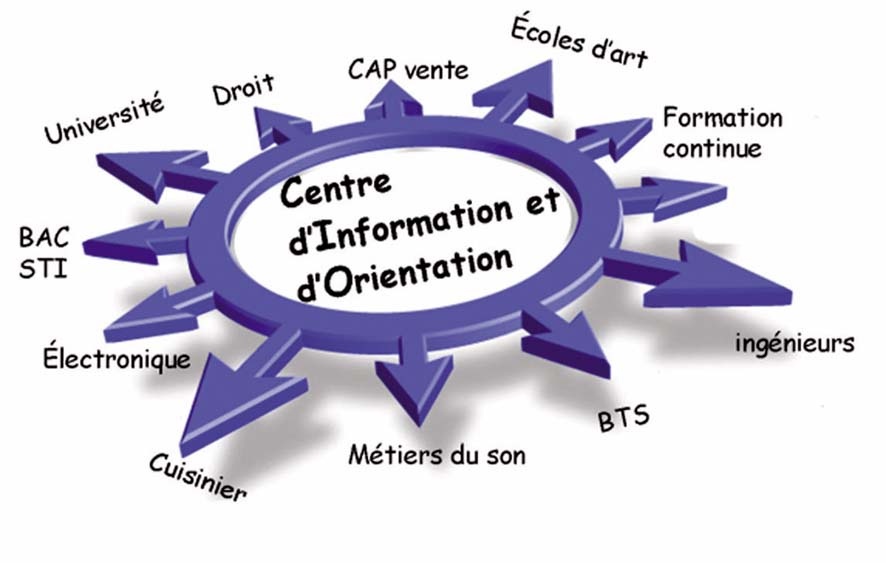 Voilà les grandes lignes de notre plan d’action; j’espère, qu’à la parution de chaque nouvelle issue, nous aurons quelque peu remédié à ce grand mal qu’est le manque d’orientation scolaire. Nous restons à votre disposition pour recevoir toutes les suggestions que vous voudrez bien nous proposer sur notre courrier électronique ou sur téléphone direct.
Voilà les grandes lignes de notre plan d’action; j’espère, qu’à la parution de chaque nouvelle issue, nous aurons quelque peu remédié à ce grand mal qu’est le manque d’orientation scolaire. Nous restons à votre disposition pour recevoir toutes les suggestions que vous voudrez bien nous proposer sur notre courrier électronique ou sur téléphone direct.
Par: Renée Rafie
Que devient Le Français dans l’enseignement au Liban?
Pourquoi Le Français au Liban qui est la 1ère langue étrangère de l’écrit passe au 2nd rang dans le monde des medias et de l’audio-visuel??
Le Français est presque absent sur internet. La Francophonie de la radio et de l’ordre 1/10. Au cinema sur 100 Films 8 sont Français seulement.
Voilà pourquoi le Français est entrain d’apparaître comme une simple discipline scolaire voire même une contrainte pour la majeure partie des élèves branchés sur internet, radio et cinéma.
L’Anglophonie de la population libanaise progresse mais parallèlement à la Francophonie si bien qu’on peut parler de croissance parallèle.
Actuellement le taux des Francophones dans la population libanaise tourne autour de 48%.
Le Français dans l’enseignement scolaire
Les Statistiques montrent que 67% de nos élèves sont dans des établissements Francophones contre 33% dans les établissements Anglophones. Le degré de connaissance du Français évolue avec l’âge et le niveau d’instruction mais reste relativement assez-bas surtout dans les établissemnets publics, compte tenu du nombres d’heures consacrées à l’enseignement en Français.
Notons cependant le grand nombre des étudiants admis chaque année dans les Universités Francophones du pays après avoir reussi le test de langue Française.
Le Français dans l’enseignement Universitaire
Sur 41 Etablissements d’enseignement superieur qui excercent au Liban, 9 sont totalement ou partiellement Francophones.
Ces universités font passer des tests d’aptitude en langue Française avant l’inscription comme l’USJ et l’USEK. Leur admission à l’université est conditionnée par le resultat et des cours de mise à niveau sont ajoutés à leur programme de spécialisation universitaire.
L’UL qui est l’unique université d’état accueille plus de 60% des étudiants du pays, le test d’aptitude en langue Française se fait dans le courant de la 1ère année d’admission. L’arabe est considéré comme la langue d’enseignement à l’UL, cependant le choix de la langue d’enseignement peut être déterminé par les convictions des responsables des facultés et la disponibilité d’enseignants de formation Francophone.
On constate que toutes les branches scientifiques enseignent en Français et que le droit et les Sciences politiques sauf 1 à 2 matières sont enseignées en Arabe.
Par: Renée Rafie
AMIDEAST, SAT Administration
Certified by Educational Testing Service (ETS) in Princeton, New Jersey to administer the SAT®, AMIDEAST includes this service in its portfolio of programs to facilitate the U.S. university application process for students and professionals who wish to obtain higher education degrees in America.
Nearly every university in America uses the SAT® as a common and objective scale for evaluating a student’s readiness for undergraduate study.
While secondary school grades are also a useful indicator of how students will perform in college, there is great variation in grading standards and course rigor
within and across schools. More than 80 years ago, the College Board – a not-for-profit membership association based in the U.S. with the mission of connecting students to college success and opportunity – created the first standardized college entrance test to help colleges and universities identify students who could succeed at their institutions. ETS now produces the SAT® for the College Board, and over two million students around the world take the test each year. For more information about the SAT®, visit http://www.collegeboard.com/
In addition to administering the SAT®, AMIDEAST is certified by ETS to administer the Internet-Based TOEFL® (Test of English as a Foreign Language) and the Institutional Testing Program TOEFL® and offers test-preparation courses for both versions of the test, in addition to courses to assist students prepare for the SAT®, GRE® and GMAT®. At its offices worldwide AMIDEAST also provides assistance to students and professionals seeking information about American universities through its Education USA center, which offers information sessions and a variety of resources about higher education opportunities in the U.S. Additional programs include a 12-level general English program taught by American instructors qualified to teach English as a Second Language.
Why Take the SAT?
Find out how the SAT can benefit you
As the nation’s most widely used college admission test, the SAT is the first step toward higher education for students of all backgrounds. It’s taken by more than two million students every year and is accepted by virtually all colleges and universities.
There are many reasons to take the SAT, but here are a few of the biggies:
It tests what you already know
The SAT tests the reading, writing and math skills that you learn in school and that are critical for success in college and beyond.
It gives both you and colleges a sense of how you’ll be able to apply the thinking, writing and study skills required for college course work.
It’s fair to everyone
The questions are rigorously researched and tested to make sure students from all backgrounds have an equal chance to do well.
And the test is straightforward. There are no tricks designed to trip you up. Students who do well in the classroom are often the same ones who will do well on the SAT.
It’s more than just a test
The SAT also provides the opportunity for you to connect to scholarship opportunities, place out of certain college courses and learn more about your academic strengths.
It helps you select the right fit for college
SAT scores are among the factors considered in college admission. Many schools’ websites share the range of SAT scores reported by their admitted students. You can also find this information in College Search. This valuable information allows you to research which colleges might be the best fit for you.
Rise to the challenge
The 21st century global economy is fast-paced and changeable. You’ll need a new set of skills – and a habit of lifelong learning – to flourish in this information age. The best way to succeed and thrive as an adult is to challenge yourself to rise to a high level of academic excellence now. You’ll do that best by taking challenging high school courses and working hard in them.
The SAT provides a trusted, nationally recognized indicator of your academic readiness for college. In a way, the SAT is the bridge between the hard work you’ve already done and the college that is the best fit for the future you are about to create.
What is the SAT I?
The SAT I is designed to measure a secondary school student's reasoning skills. It is a requirement for applicants to some, but not all, U.S. and international universities. The SAT I is made up of multiple-choice questions that measure mathematical and verbal reasoning abilities.
Where do I get an SAT I bulletin?
AMIDEAST maintains a supply of registration bulletins and Taking the SAT I bulletins. If you are not in a country where AMIDEAST has an office, please visit your high school guidance counselor or local advising office to obtain a bulletin.
Where and when can I take the SAT I?
The SAT I is offered several times a year with registration deadlines approximately two months before the test date. The SAT I is administered on those dates in a paper-based format.
How do I register?
Students who wish to take the test in a country where AMIDEAST has an office may register for the SAT I at most AMIDEAST offices. Other candidates should refer to the SAT bulletin to register by fax or mail. They may also register on-line using a credit card.
How do I prepare for the SAT I?
It is important for you to be familiar with the kinds of questions asked on the SAT I. There are several ways to prepare.
- Visit the SAT Web site for sample questions and tips
- Do the questions and sample test in the free Taking the SAT I bulletin
- Purchase SAT preparation materials from AMIDEAST
- Take a test preparation class at AMIDEAST
What do I do on the day of the test?
Arrive at the test site 30 minutes before the assigned test time. Check-in procedures take time. If you arrive late, you may not be admitted to the test, and you will forfeit your test fees. Bring photo bearing identification, as described in the SAT registration bulletin. Bring your test confirmation information.
What about my scores?
Your official scores will be mailed from the United States about three weeks after the test. Please allow time for them to arrive by international mail.
If you need score reports to be sent to additional institutions, please complete the form in the SAT registration bulletin and return it with payment to the College Board. If paying by credit card, you may also contact the College Board on-line or by telephone as detailed in the registration bulletin.
Questions about any missing score reports (scores not received after 8 weeks or longer) should be directed to the Educational Testing Service, which issues the SAT score reports. An e-mail sent to the This email address is being protected from spambots. You need JavaScript enabled to view it. usually will receive a response in five to seven days. Score report problems are best avoided by careful preparation of the registration form: writing name and mailing address clearly and following payment.
What is TOEFL?
The Test of English as a Foreign Language (TOEFL) evaluates the English proficiency of people whose native language is not English. Most U.S. universities require that international applicants take the TOEFL. Generally a score of 61 to 80 on the Internet-based TOEFL (iBT),
173 to 250 on the computer-based version, or 500 to 550 on the paper-based version is required for admission to undergraduate and graduate programs in the United States, with graduate schools expecting the higher scores.
TOEFL iBT is a four-hour test with content to assess reading, listening, speaking, and writing skills.
Where do I get a TOEFL bulletin?
AMIDEAST maintains a supply of test bulletins with all pertinent information about the TOEFL, including the registration form.
Information on the exam content and registration procedures is also available at the TOEFL Web site.
Where and when can I take the TOEFL?
The TOEFL exam is administered in an Internet-based format at AMIDEAST/Lebanon. Tests are held approximately every two weeks, depending on demand, and are scheduled by appointment. Be sure to register early as test centers can fill quickly.
How do I register to take the TOEFL?
You may register directly with ETS (see TOEFL bulletin for details) or for a small additional fee you may register in person at AMIDEAST/Lebanon. You may pay in local currency at AMIDEAST/Lebanon but you still need to meet the registration deadlines and complete a TOEFL registration form.
- Click here to learn how to register for the Internet-based (iBT) TOEFL.
- Click here to learn how to register for the Institutional TOEFL (ITP).
How do I prepare for the TOEFL?
It is important for you to be familiar with the kinds of questions asked on the TOEFL. There are several ways to prepare.
- Do the sample questions in the TOEFL bulletin
- Visit the TOEFL Web site to see sample questions and tests
- Purchase TOEFL preparation materials from AMIDEAST
- Take a test preparation class at AMIDEAST
What do I do on the day of the test?
Arrive at AMIDEAST or other assigned test center 30 minutes before the assigned test time. Check-in procedures take time. If you arrive late, you may not be admitted to the test, and you will forfeit your test fees.
- Bring photo bearing identification, as described in the TOEFL registration bulletin.
- Bring your test confirmation information.
What about my scores?
Your unofficial score, without the essay grade, will appear on the screen following the test. Your official scores will be mailed from the United States about two weeks after the test if you type your essay or five weeks if you handwrite your essay. Please allow time for them to arrive by international mail.
If you need score reports to be sent to additional institutions, please complete the form in the TOEFL bulletin and return it with payment to ETS. If paying by credit card, you may also call ETS at (609) 771-7267 to order additional score reports. Scores are valid for two years.
Questions about any missing score reports should be directed to Educational Testing Service (ETS), the nonprofit organization that develops TOEFL and issues score reports. An e-mail sent to the ETS customer service address—This email address is being protected from spambots. You need JavaScript enabled to view it.—usually will receive a response in five to seven days. Test takers should wait at least eight weeks before contacting ETS about score reports. Score report problems are best avoided by careful preparation of the registration form: writing name and mailing address clearly and following payment procedures detailed in the TOEFL bulletin. SAT
GRE® General Test
What is the GRE?
The Graduate Record Examinations (GRE) are required for applicants to many graduate-level programs in the United States and at international universities. The GRE is made up of the General Test, composed of verbal, quantitative, and analytical sections, and of Subject Tests on specific academic fields. Some universities require only the General Test while others will request applicants to take Subject Tests related to their planned area of study. The GRE bulletin has additional information on these tests.
Where do I get a GRE bulletin?
AMIDEAST maintains a supply of test bulletins with all pertinent information about the GRE, including the registration form. Information on the exam content and registration procedures is also available on the GRE Web site.
Where can I take the GRE General Test?
The GRE General Test is currently administered by computer in the Prometric Test Center at AMIDEAST/Beirut. The GRE is also administered in other countries, either by computer or in a paper-based format.
How do I register to take the GRE?
You may register for the GRE by telephone, fax, or postal mail with the Regional Registration Center in Cairo, or for a small additional fee you may register in person at AMIDEAST/Lebanon. If you register at AMIDEAST/Lebanon, you may pay in local currency but you still must meet ETS deadlines and fill out the GRE registration form.
- Click here for information on how to register for the GRE at AMIDEAST.
- Click here for information on how to register for the GRE at Regional Centers.
How do I prepare for the GRE?
It is important for you to be familiar with the kinds of questions asked on the GRE. There are several ways to prepare.
- Visit the GRE Web site
- Do the sample questions in the GRE bulletin
- Purchase GRE preparation materials from AMIDEAST
- Take a test preparation class at AMIDEAST
What do I do on the day of the test?
Arrive at AMIDEAST or other assigned test center 30 minutes before the assigned test time. Check-in procedures take time. If you arrive late, you may not be admitted to the test, and you will forfeit your test fees. Bring photo bearing identification, as described in the GRE registration bulletin. Bring your test confirmation information.
What about my scores?
Unofficial scores appear on the computer screen following the test. Your official scores will be mailed from the United States about two weeks after the test. Please allow time for them to arrive by international mail.
Questions about any missing score reports should be directed to Educational Testing Service, the nonprofit organization that scores GRE and issues score reports. An e-mail sent to the This email address is being protected from spambots. You need JavaScript enabled to view it. usually will receive a response in 5 to 7 days. Score report problems are best avoided by careful preparation of the registration form: writing name and mailing address clearly and following payment procedures outlined in test bulletins.
If you need score reports to be sent to additional institutions, please complete the form in the GRE bulletin and return it with payment to ETS. If paying by credit card, you may also call ETS at (609) 771-7290 or send a fax to (609) 771-7906 to order additional score reports. Scores are valid for five years.
Test D'aptitude
Le test d'aptitude en langue française
L’étudiant doit avoir obtenu le niveau "A" au test d'aptitude en langue française.
Tous les candidats, quels que soient les titres qu'ils peuvent invoquer (Bac français, TCF, DELF, nationalité française ou d'un pays dont la langue officielle est le français, etc.), sont appelés à présenter ce test.
Les candidats classés en catégorie "B" au test d'aptitude peuvent s'inscrire aux concours d'admission des institutions suivantes : Facultés de médecine, pharmacie, médecine dentaire, ingénierie et à l'École de traducteurs et d'interprètes de Beyrouth. Ils doivent avoir été classés en catégorie "A" au test d'aptitude en langue française avant la date ultime de leur première inscription.
Cependant les candidats classés en catégorie ‘B’ à ce test sont autorisés à effectuer leur inscription dans les différentes institutions, à l’exception de celles susmentionnées et de la Faculté de droit et des sciences politiques. Ces candidats s’engagent à être classé en catégorie ‘A’ avant la fin de leur première année d’études en s’inscrivant à un cours extensif de mise à niveau au 1er semestre d’étude ; en cas d’échec, ils peuvent le répéter au 2ème semestre et au semestre d’été pour une dernière fois. En validant ce cours l’étudiant valide 3 crédits d’optionnelles ouvertes sur son cursus.
Pourquoi ?
1 - L'USJ veut s'assurer que les candidats ont le minimum d'aptitudes requises pour suivre des cours universitaires.
2 - L'USJ souhaite également maintenir la qualité de la langue française dans ses enseignements.
3- L'USJ veut permettre aux bacheliers de combler des déficits de pratique du français.
S'inscrire au test d'aptitude
Trois démarches s'offrent à vous :
vous pouvez vous inscrire individuellement ou collectivement par l'intermédiaire de votre établissement scolaire. Des conditions particulières s'appliquent aux étudiants ayant suivi leurs études secondaires à l'étranger.
Service des tests
Adresse :
Campus des sciences humaines
Rue de Damas
B.P. 17-5208 - Mar Mikhael
Beyrouth 1104 2020
Téléphone : 01-421000
Poste : 5507
Télécopie : 01-421000 ext. 5524
Courriel : This email address is being protected from spambots. You need JavaScript enabled to view it.
- See more at:http://www.usj.edu.lb/testdaptitude/#sthash.ZwcaSg2a.dpuf
Edito
With the increasing number of universities in Lebanon, some of which have a proud and solid history while others are still trying hard to integrate and find a suitable spot on the educational and cultural ladder; we saw the need for an all rounded magazine that would focus on important educational and academic issues. A magazine that can both, bridge the gap between high school students and the higher educational institutes; and guide, advise, may be even shed some light on where to go or what to consider for a field of study or major.
Given the importance of what the general-public thinks of the educational system, his approach to the various institutions and his stand point from some; our magazine has dedicated a section to those who are keen on making their voices heard and their dilemma’s resolved. With total knowledge that, these fears and concerns could be justified at times and taken as mere hearsay at others.
We shall neither be prejudiced nor biased, our aim is not to promote one institute and demote another; our principles are objectivity, impartiality, transparency and straight forwardness.
Here, we look forward to the support of the universities and institutions to help us help our young students with their aspirations, dreams, and ambitions.
We set forth on this mission with the benefit of our children at heart. Knowing all too well that a successful and bright future is every parent’s dream; and that no sacrifice is too high if the price is an honored diploma and a worthy certificate. What lies ahead is not easy for our students, but we believe that our magazine will help them look at their options and choices from different angles; this will be done through the many articles, interviews, and points of views that this magazine shall put with in the reach of each and every student.
Our hope remains that we can work hand in hand with all universities and institutions in Lebanon to assist our “Young Leaders” build a solid and stable future for themselves.
Gaby Yazigi
Editor-In-Chief
General Manager








